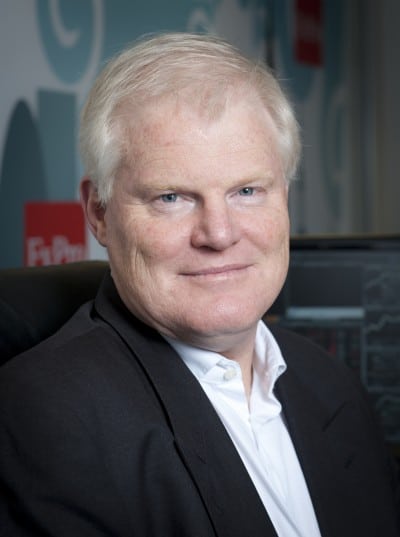The US Presidential Elections are likely to shake all currencies. The Australian dollar is set to make larger moves, especially if the result is not favorable for addressing the fiscal cliff, says Michael Derks of FxPro.
In the interview below, Derks also discusses the inevitability of a Spanish bailout, the situation in Greece, the “transitional” situation of the UK economy and more.
Michael joined FxPro in May 2010 having been previously at Deutsche Bank, Rothschild and Schroders. He is a multi-discipline investment and market strategist/economist with extensive expertise in FX, strategic and tactical asset allocation, fixed income, equities, property and alternative assets. An accomplished economic and investment writer and researcher, Michael holds a Bachelor of Economics degree from Macquarie University in Sydney.
- Is a Spanish bailout request inevitable, or can Spain still wait? Spanish PM Rajoy is simply delaying the inevitable in terms of not applying for a bailout from Europe’s rescue funds. The economy is in a prolonged recession, property prices continue to decline, the finances of regional governments are in a dreadful condition and social security spending is ballooning. Interestingly, yesterday’s budget figures showed that the central government deficit fell to 4.4% of GDP for the first nine months of the fiscal year, helped by a surge in value-added tax receipts.
- Negotiations between the troika and Greece are not fruitful so far. Is there a real risk that Greece may run out of money or even leave the euro-zone? Or are some worrying headlines just part of the last minute tit-for-tat? It is certainly the case that negotiations between the troika and the Greek government have been fraught, but they have now almost reached a conclusion. On the surface, it appears that the troika has acceded to the request for a two-year extension, with the quid pro quo from Athens being the acceptance of increasingly intrusive fiscal monitoring and control. One of the contentious suggestions that has been put forward is that the official sector needs to accept a haircut in order for Greek public debt to be put back onto a sustainable path. Greece looks set to receive the next tranche of EU aid very soon.
- Which currency pair could enjoy the highest volatility around the US presidential election? Of the major currency pairs, it may be the Aussie that demonstrates the highest volatility, especially if the outcome of the presidential election is perceived to be adverse for the arresting of the fiscal cliff issue. (See how to trade the elections with EUR/USD).
- Volatility in EUR/USD has been low for a long time. Are markets indifferent to debt crisis news? Or are low interests to blame? Currency volatility amongst the majors has been low for some time. In large part, this reflects the fact that traders and investors have become inured to Europe’s debt crisis and have adjusted their currency allocations accordingly. In addition, interest rate differentials are now so narrow that their explanatory power has become virtually inconsequential.
- Do you think that the UK’s impressive GDP growth report reflects a genuine comeback, or is it only a one-time Olympic leap? It is certainly the case that some of the growth indicators out of the UK recently have been surprisingly robust, such as the jobs data and consumer spending. Unfortunately, this will prove to be transitory. Indeed, there are already some anecdotals suggesting that the final quarter of this year is very tough. At best, the UK economy is merely trekking sideways.

